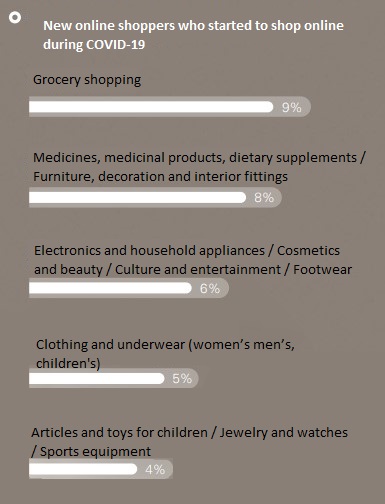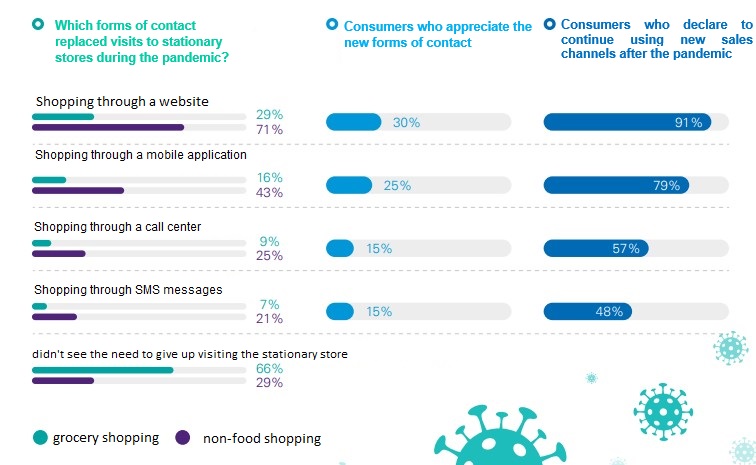Much has been said about the branches that lost during the pandemic. The event or tourist industry is in crisis. The catering industry cannot talk about happy times either. Undoubtedly, online shopping and e-commerce have gained in importance. The question is whether Poles have actually become convinced regarding online shopping and the interest in e-commerce is able to last longer?
In September KPMG published a report “The New Reality: the Consumer in the COVID-19 Era. How Have Poles’ Shopping Habits Changed During the Coronavirus?”. The publication touches upon several topics, such as shopping safety, financial situation, or offline and online shopping. In this entry I will focus on the last issue.
Recruitment of new customers
Citing data from the report we read that during the COVID-19 pandemic, 6% more people were buying online. Every third person (34%) decided to buy products from new categories for the first time online. The largest number of “new” customers was recorded by stores offering food products (9%), medicinal products and supplements, as well as shops with furniture, decorative articles and interior design (8%), and stores with electronics, cosmetics, footwear and culture and entertainment (6%).

More and more often
Not only are there more buyers, but we also buy more often. The categories are very similar to those mentioned above, so we buy food (22%), medicines and dietary supplements (15%), or articles from the cosmetics and beauty section (10%) more often. In case of purchasing non-food products in online stores, we used websites (71%) and mobile applications (43%) more often, and even made them through dedicated call centers (25%).

Convenient and less expensive
What, on the other hand, is the reason why we decide to shop online? The motivation is very similar both in the category of food and non-food products. Three main reasons for both categories are: convenience, price and safety. Due to the COVID-19 pandemic, the safety factor is by no means surprising – in the new sanitary conditions, we pay attention to how stores respect the rules. The lack of protective measures by the store staff is one of the inconveniences for 32% of respondents thinking about buying groceries. If we look at another conclusion, which KPMG draws attention to, the price is not without significance either. The report shows that the outbreak of the COVID-19 pandemic resulted in a deterioration of the financial situation for 44% of Poles.

